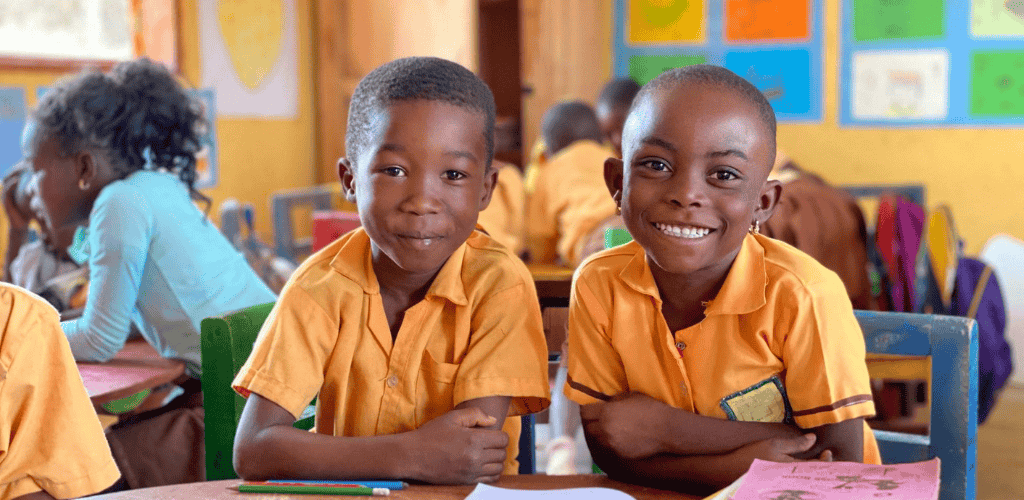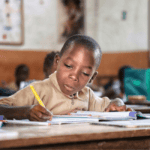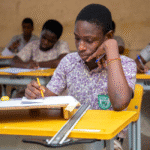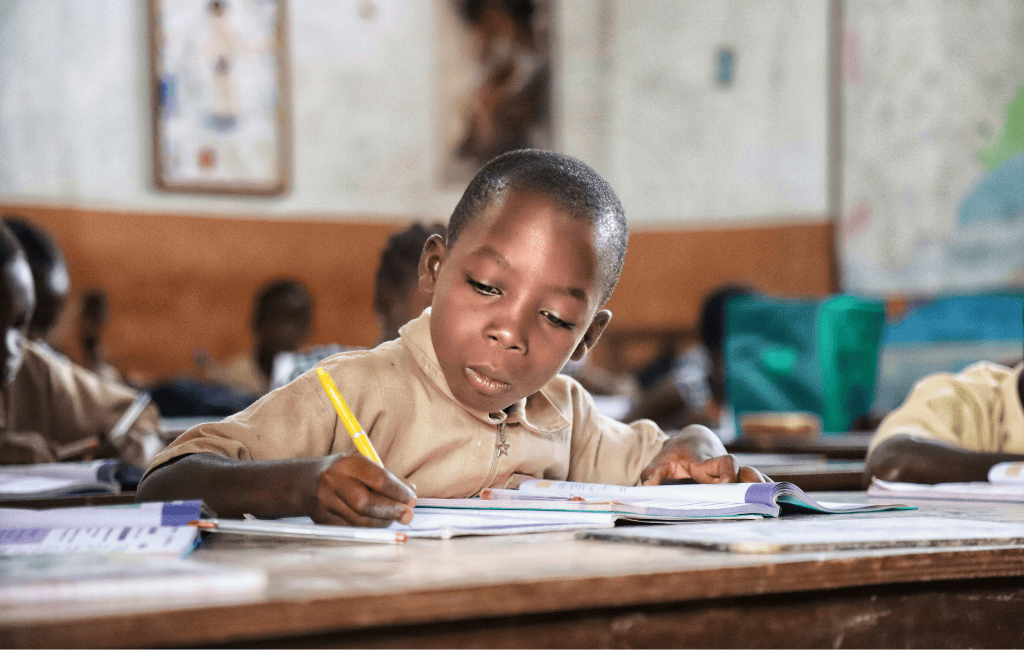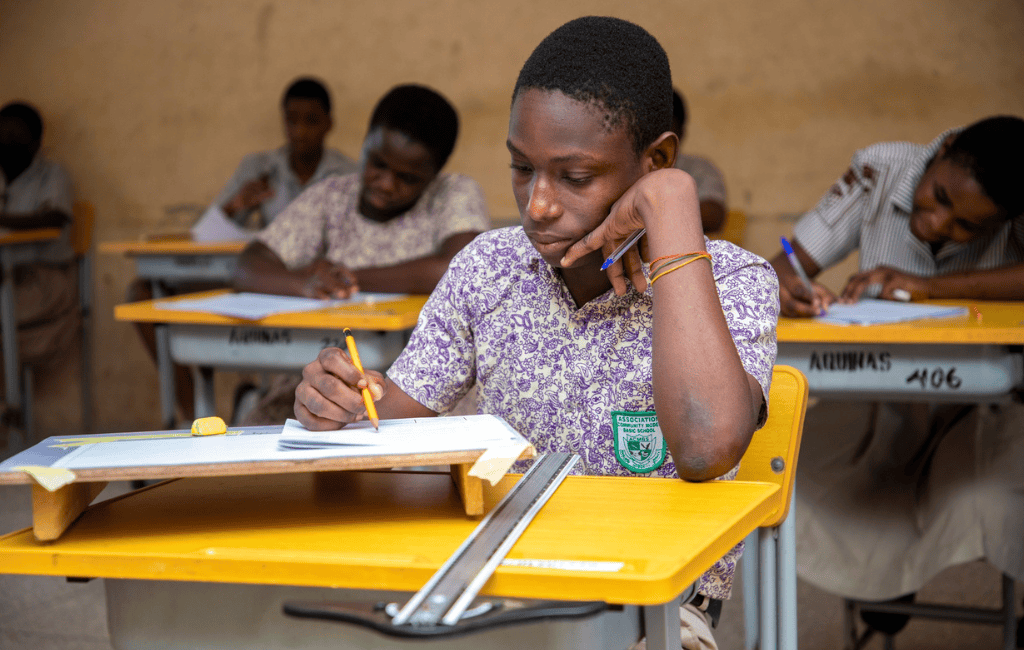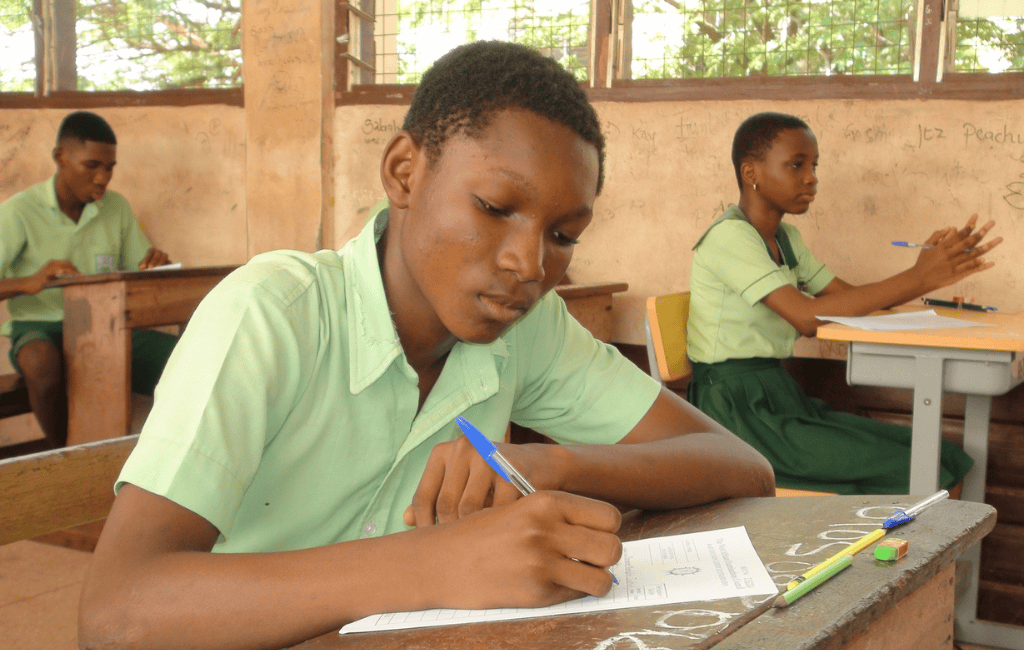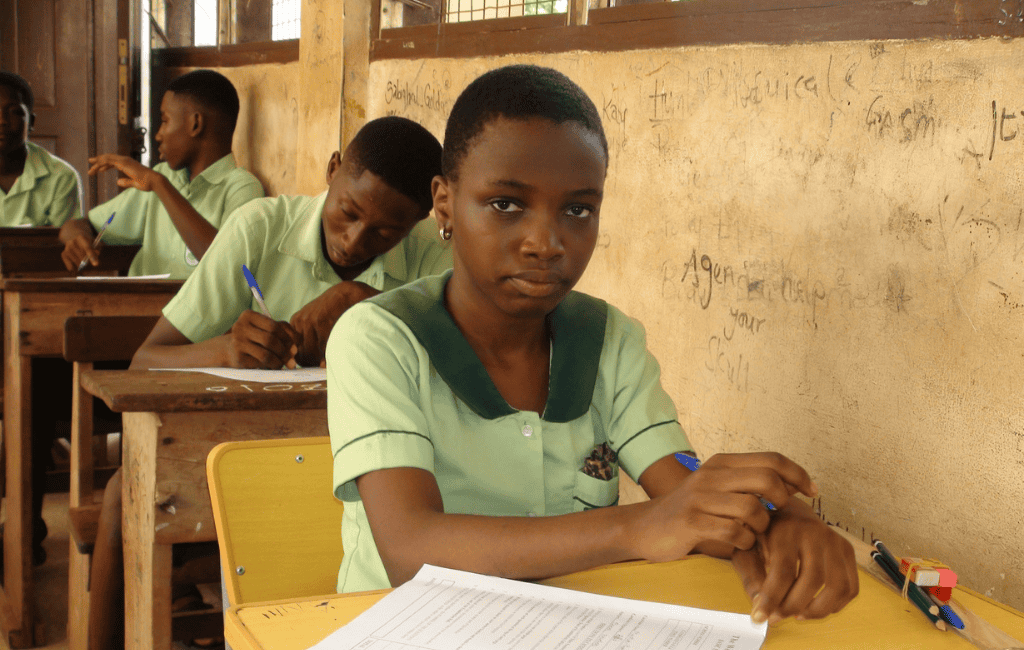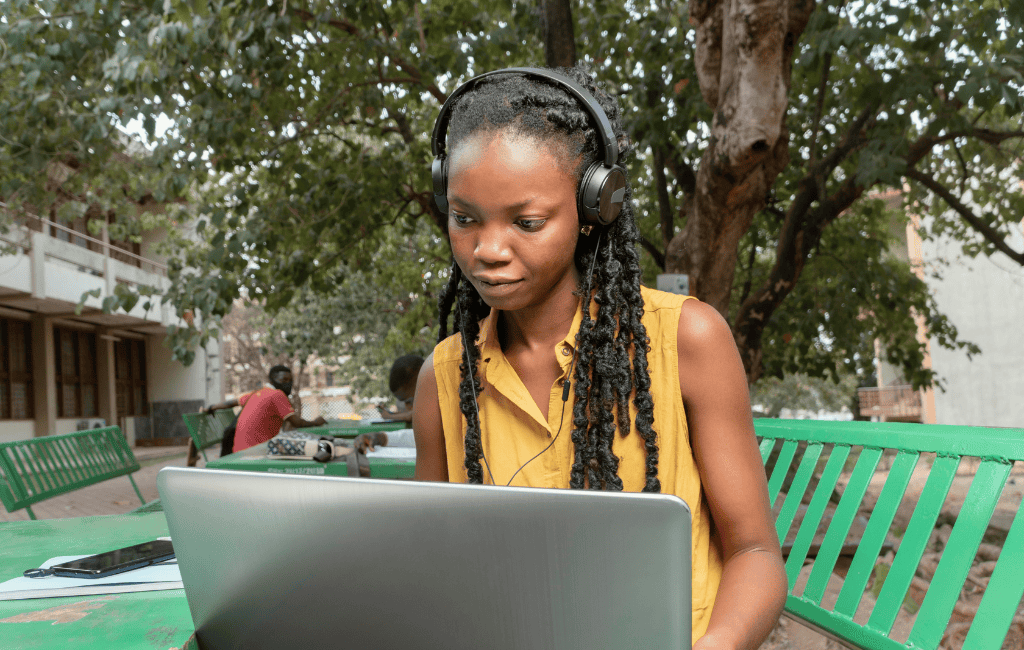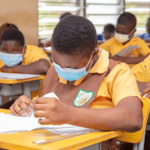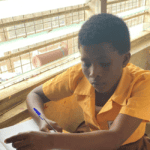Key takeaways
- The basic education structure in Ghana includes two years of kindergarten, six years of primary, and three years of junior secondary education.
- Challenges in Ghana’s basic education system include inadequate funding, inequality in education access, child labor, and gender disparity.
- The government’s basic education initiatives include the Complementary Basic Education (CBE), Free Compulsory Universal Basic Education (FCUBE), and the Ghana School Feeding Program (GSFP).
Formal education in Ghana is instrumental in improving the lives and equipping individuals with the knowledge and skills necessary for national development. This article goes over the basic education system in Ghana, its structure, examination requirements, challenges, and ongoing reforms.
What is basic education?
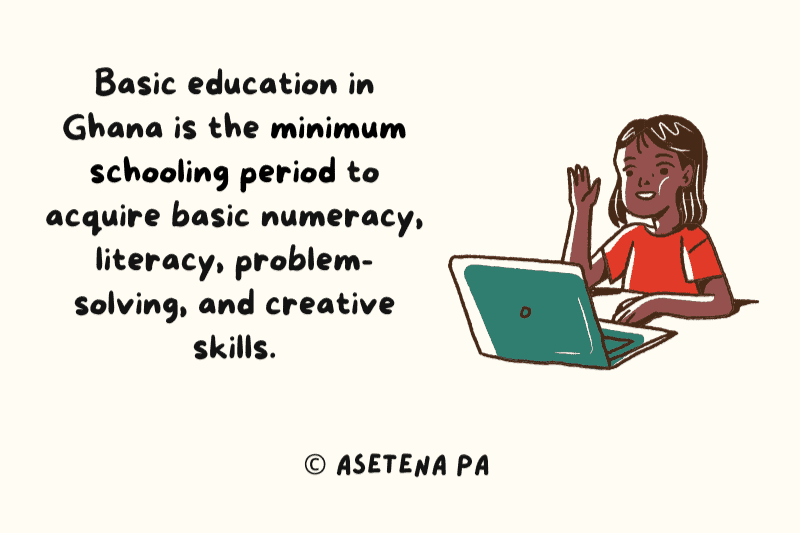
Basic education in Ghana is the minimum schooling period to acquire basic numeracy, literacy, problem-solving, and creative skills. This form of education started with Dutch, English, and Danish merchants in the mercantile era. However, despite progress under colonial rule with 139 schools in Gold Coast, only 6.6% of the Ghanaian population attended these schools.
Consequently, in the post-independence era, Dr Kwame Nkrumah introduced the 1961 Act to make education free and accessible for all Ghanaians. The education structure at the time consisted of 6 years of primary education, 4 years of middle school, and then 3 years of secondary education or 2 years of pre-vocational classes.
Later on, the 1987 reforms combined primary and middle school education and introduced the junior secondary school (JSS) system in a 9-year curriculum. They established nine years of free and compulsory basic education, which comprised six years of primary and three years of junior secondary education.
Ghana’s basic education structure
The current basic education in Ghana has a defined structure from kindergarten to JHS 3.
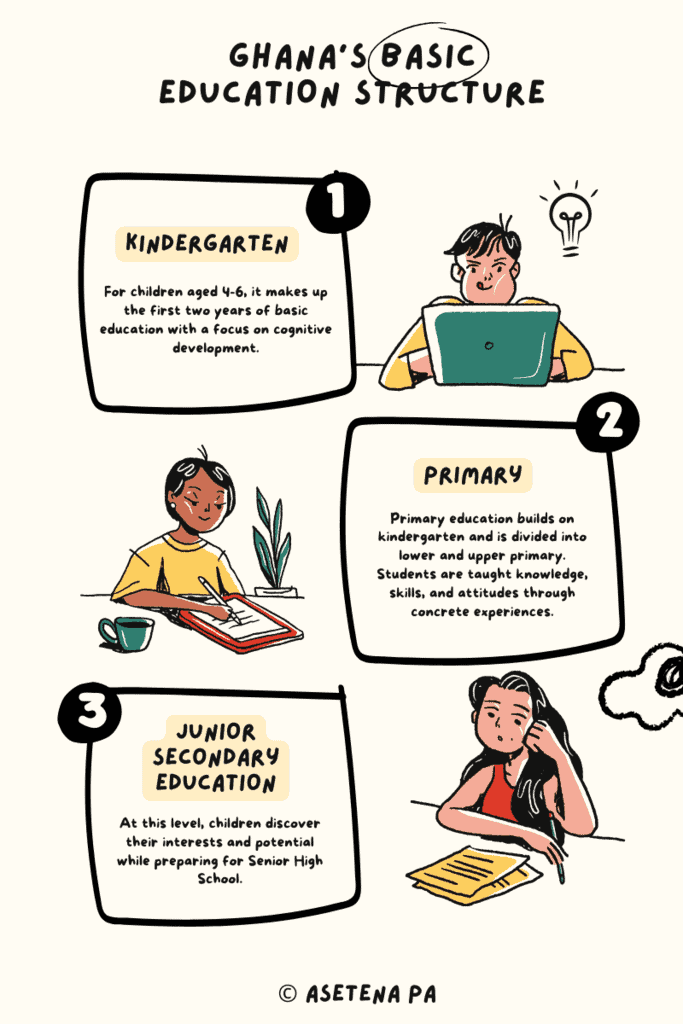
Kindergarten education
Kindergarten education, intended for children aged 4-6, makes up the first two years of basic education. The focus is on cognitive development through activities involving concrete objects, such as games and puzzles. Ghana Education Service (GES) outlines six learning areas:
- Number work (mathematics)
- Drawing and writing
- Language and literacy
- Physical education
- Music and dance
- Environmental studies.
Kindergarten differs from crèche and nursery schools that cater to children aged 3 months to 4 years. These schools have more flexible, play-based curricula, whereas kindergarten has a more structured academic focus to ensure children are ready for the transition to primary education.
Primary education
Primary education builds on kindergarten and is divided into lower and upper primary.
- Lower Primary (Ages 6-8): This stage spans three years, and students are taught knowledge, skills, and attitudes through concrete experiences. The learning areas are:
- English language skills
- Basic mathematical skills
- Ghanaian languages
- Religious and moral education
- Natural science
- Social and environmental studies.
- Upper Primary (Ages 9-11): Here, the curriculum encourages creative thinking, reflection, curiosity, observation, and problem-solving. The learning areas include:
- Ghanaian languages
- Basic mathematical skills
- English language skills
- Integrated science
- Citizenship education (social studies, civic, life skills)
- Hygiene
- Religious and moral education
Junior secondary education
Junior secondary education (now junior high school) comprises the last three years of basic education. At this level, children discover their abilities, interests, and potential while preparing to acquire vocational or technical skills at the secondary level. Subjects taught include:
- English language
- Mathematics
- Integrated science
- Social studies
- Ghanaian languages
- Information Communication Technology
- Religious and moral education
- French
- TVET (technical, vocational education and training)
Music and dance, arts and crafts, and physical education are taught practically in primary and junior high school (JHS) but are non-examinable. No external examination is required when transitioning from primary six to JHS 1. However, JHS 3 students must take the Basic Education Certificate Examination (BECE) to advance to the next level.
How other countries compare
Ghana’s education system uses multi-level educational structures—kindergarten, primary, and junior secondary education—found in other African countries, such as Nigeria, Kenya, and Sierra Leone. However, the curricula and teaching methodologies vary.
The educational systems in more developed regions, like the UK and the USA, differ significantly. In the UK, for instance, basic education is divided into four key stages, from Year 1 through Year 11, after which GCSE exams (General Certificate of Secondary Education) are written, and students continue to post-16 education.
For the US, the education system varies by state but generally includes six years of elementary school (kindergarten to grade 5 or 6), three years of middle school (grades 6 to 8), and four years of high school (grades 9 to 12). Students take standardised tests at various grade levels, such as the SAT or ACT, to assess their readiness for college.
Government initiatives, policies, and programs
Basic education programs and initiatives by the Ghana government include the following:
#1 – Complementary Basic Education (CBE)
The CBE program is a step towards achieving SDG 4 (Sustainable Development Goal). It ensures that out-of-school children aged 8-14 from the poorest parts of the country have access to quality education. Children are taught to read, write, and numerate within a nine-month learning period. Afterward, they join primary schools in class 3 or class 4.
Teaching and learning packages are translated into 12 local languages, and volunteer facilitators facilitate classes. Studies demonstrate that children placed in public schools after the program (in class 3 and class 4) show a similar level of learning as the children already in these schools are consistent in their progress.
#2 – Free Compulsory Universal Basic Education (FCUBE)
The FCUBE policy was introduced in Ghana in 1996 but fully implemented in 2006. This policy ensures that all children in Ghana can access free formal education, regardless of their parents’ status. GES created three broad objectives to achieve this goal:
- Improve access to good quality basic education.
- Enhance teaching and learning quality.
- Ensure adequate and timely supply of teaching and learning materials to schools.
#3 – Ghana School Feeding Program (GSFP)
The comprehensive Africa Agricultural Development Programme (CAADP) Pillar 3 inspires the Ghana school feeding program. The objectives of this program include the following:
- Reduce hunger and malnutrition in kindergarten and primary school children.
- Increase school enrolment.
- Increase domestic food production in impoverished communities across the country.
- Increase food security and reduce poverty.
The program provides each child in public primary schools with a hot meal prepared with locally sourced ingredients each school day.
Basic education challenges in Ghana
Despite the progress made, there are still some challenges with basic education in Ghana. Here are a few worth considering:
- Inadequate funding leads to poorly trained teachers, limited learning resources, and overcrowded classrooms.
- Inequality in education, with children in rural areas having less access to quality education.
- Child labour, due to poverty, often causes children to miss out on education.
- Gender disparity, with girls more likely to drop out of school due to early marriage and other cultural norms.
FAQs
What is the Basic Education Act in Ghana?
The Basic Education Act in Ghana refers to the Education Act 2008 (Act 778), the most recent major education legislation in Ghana. The objective of Act 778 is to establish an education system that produces well-balanced individuals with the necessary knowledge, skills, values, aptitudes, and attitudes to become productive and functional citizens.
What curriculum does Ghana use?
Following the current education reforms and the Pre-tertiary Act 2020 (Act 1049), the NaCCA (National Council for Curriculum and Assessment) is focused on the Standards-Based Curriculum.
Conclusion
Basic education in Ghana has come a long way, yet the primary goal of offering free quality education to all Ghanaian children remains the same.
Despite challenges, reforms are being made to ensure that education is accessible and relevant to the Ghanaian populace and children can attend school regardless of their location and economic background.
